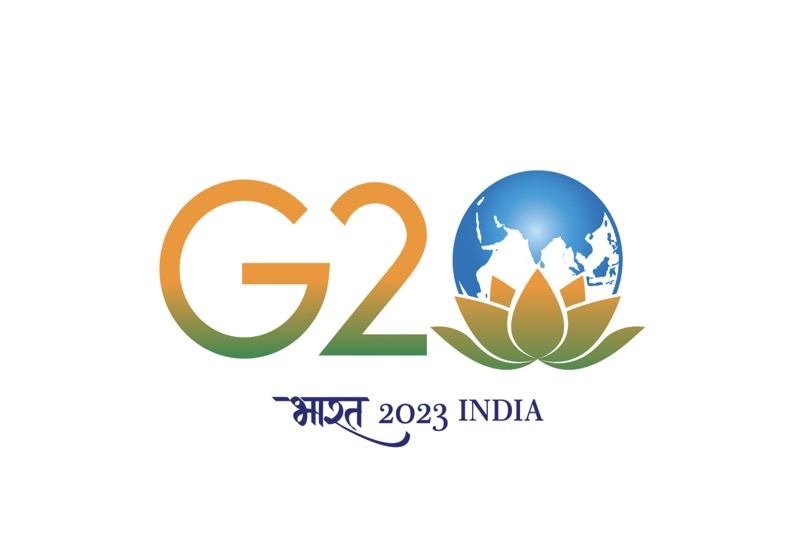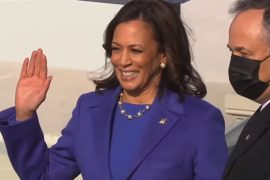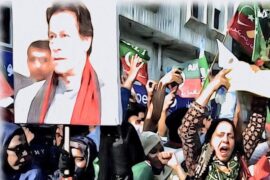The eighteenth summit of the G20, representing 66 per cent of the world’s population, 85 per cent of GDP, 75 per cent of international trade, producing 80 per cent of pollution, organized by the host government with the elaborate choreography of a Wagnerian opera saw a diplomatic coup by India. Pundits, especially in the West, had confidently predicted that this summit might be the first one to end without a declaration. It is evident that India’s diplomats squared the circle on Ukraine. However, reflection shows that the drafting skills of the host alone cannot account for the outcome.
In the last G20 summit in Bali (November 2022), Indonesia, under Western pressure, invited President Zelensky, who spoke of “G19,” implying that Russia should be thrown out of the group. India stood up to the Western pressure, exerted this time as well, to invite Zelensky and earned brownie points from Moscow.
Paragraphs 8 to 14 of the declaration deal with the conundrum of the war between Ukraine (plus NATO) and Russia. There is no change in the positions of G20 states as reflected in their voting at the United Nations General Assembly and United Nations Security Council. All states are bound to respect the UN Charter, which prohibits the use of force for territorial expansion. The use or threat of use of nuclear weapons is ‘inadmissible’. G-20 is not the forum for resolving ‘geopolitical and security issues’. In view of the enormous human suffering, all efforts should be made to have a cease-fire.
The Black Sea Grain Export arrangement should be revived. In that context, the Memorandum of Understanding between Russia and the U.N. Secretary-General on the lifting of Western sanctions in respect of food and fertilizer exports from Russia should be implemented.
There is no mention of Russia as the invader, which was there in the Bali declaration. We know that Russia suspended participation in the Black Sea Grain Export arrangement because the West did not lift the sanctions. In terms of the language, Russia has gained, and Ukraine has expressed its displeasure with the declaration, saying ‘stronger’ was called for.
Here, there is a factor that most commentators have ignored. In July 2023, Ukraine announced it would export grain without Russia’s cooperation. Russia responded by destroying the port facilities in Odessa port. Ukraine then tried to export to Romania through its ports on the Danube River.
Russia bombed those ports immediately before the G20 started. Ukraine finds itself in a situation of having to stop using the Romanian option. Ukraine hoped that NATO would respond if Russia violated Romania’s territorial integrity. Even after a part of a Russian missile fell into Romania twice, NATO has not taken note of it, though Poland said that Russia had violated the boundary of a NATO member-state.
In short, NATO, or rather President Biden standing for re-election, does not want a direct war with Russia. Therefore, if the Western sanctions on Russia’s export of grain and fertilizer are lifted, Ukraine can restart exports. However, we can understand that Ukraine had to protest for political reasons.
For two reasons, the West conceded more than Russia in terms of language. First, the West has assessed that Modi will get re-elected next year and, therefore, does not want to displease him. Second, if there is no joint declaration, the G-20 gets weakened, and the BRICS and the SCO (Shanghai Cooperation Council) might gain. The U.S. had once sought membership of the SCO in vain. The West is keen to promote the G20, though it realizes that the Global South might, through the G20, seek a change in the international order dominated by the West.
An important decision taken in Delhi was to accept the 55-member African Union as a full member. In June 2023, India, as chair, wrote seeking concurrence from others. In December 2022, Washington and Tokyo announced their support for the A.U., which had applied formally. The impression given by the mainstream Indian media that Modi ‘discovered’ Africa is rather amusing.
We know more about the menu at the 9th September dinner hosted by the President of Bharat – an important terminological change from ‘India’ – than about the discussions at the summit as the media was kept out. The White House had difficulty explaining to the American press why it could not meet the President in Delhi.
Ironically, a huge International Media Centre was there as part of the Bharat Mandapam constructed for the G20 at Rupees 3600 crore, as divulged by the External Affairs Minister of Lekhi. The total expenditure, as given by her, is Rs. 4254.75 crores. We need to wait for the CAG (Comptroller and Auditor General) for the total.
The Delhi streets have Modi’s face everywhere. A writer had calculated that President Biden could have seen Modi’s face every 50 meters on his way from the airport to Hotel Maurya Sheraton. Will a Right to Know petition will inform us of the total amount spent on placing the face in many places?
President Xi Jinping and President Putin did not attend. Xi Jinping sent Prime Minister Li Qiang. Putin had the courtesy to phone Modi and say he was not coming. Foreign Minister Lavrov represented Russia.
There is much speculation about Xi Jinping’s decision. Perhaps he wanted to send a message to India. China is concerned about India getting closer to Washington. The recent visit to Taiwan by the retired chiefs of the army, air force, and navy to Taiwan might have ruffled China’s feathers. Probably, Xi Jinping did not want to discuss with Modi the eyeball-to-eyeball confrontation along the so-called Line of Actual Control. Essentially, China wants a ‘unipolar’ Asia led by it and sees India as the main obstacle.
With 83 paragraphs and 44 annexed documents, the Delhi Declaration must be the longest G20 declaration. We do not know whether all the projects mentioned will be implemented. The G-20 has no permanent secretariat, and it is for the rotating chair to monitor the progress of implementation.
The summit provided opportunities for bilateral meetings. Modi had many, including one with Biden. One important announcement was establishing connectivity from India to Europe through the Gulf. India, the U.S., Saudi Arabia, Jordan, Israel, and the E.U. have taken the decision. Within 60 days, officials are to work out the details.
This project is a counter to China’s Belt and Road Initiative, to which India has taken objection because of the China-Pakistan Economic Corridor going through India’s territory under Pakistan’s occupation. It is worth noting that Italy has decided to get out of the agreement signed with China in this regard and that Italian Prime Minister Melloni was thinking of going to China to convey the decision formally. There is a report that she did convey the decision to China’s Prime Minister Li Qiang in Delhi.
Modi handed over the presidential gavel to Brazil’s President Lula da Silva. However, Modi announced that there should be another meeting in cyberspace before Brazil takes over formally in December 2023. That is one more opportunity to make noise domestically about Modi being a ‘Vishwaguru’ at the ‘historic’ G-20, much needed for the election battle ahead.
-30-
Copyright©Madras Courier, All Rights Reserved. You may share using our article tools. Please don't cut articles from madrascourier.com and redistribute by email, post to the web, mobile phone or social media.Please send in your feed back and comments to [email protected]











